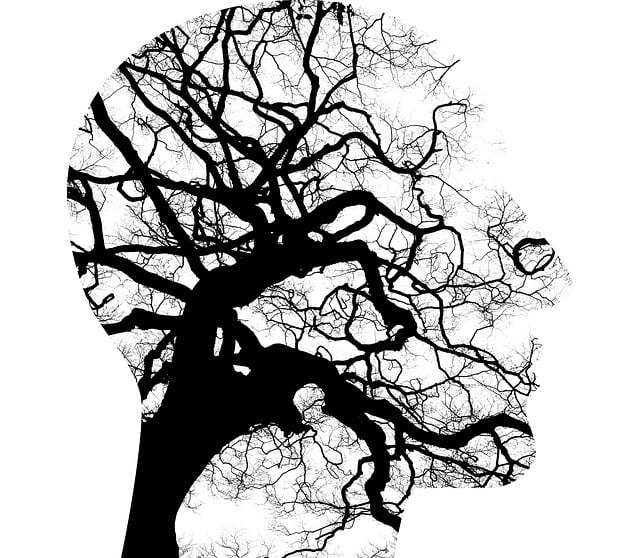Public awareness campaigns for therapy among Mandarin-speaking young adults must address cultural barriers, such as language issues and stigma, by incorporating traditional Chinese elements and relatable content. Using popular platforms like social media and webinars, along with community leader collaboration, builds trust. Campaigns should communicate sensitively, adapting language to be accessible. Regular feedback and data analysis are crucial for assessing impact and refining strategies, ensuring tailored support for this demographic's unique mental health needs. Measuring campaign success guides future initiatives, fostering a supportive environment through culturally sensitive therapy approaches.
In today’s diverse society, public awareness campaigns play a vital role in connecting with specific demographics, such as the Mandarin-speaking young adult population. This article explores strategies to develop impactful initiatives tailored to this unique group. We delve into understanding their cultural nuances and identifying needs, designing engaging campaigns, leveraging cultural sensitivity, and measuring success. By implementing these practices, we aim to enhance access to resources like therapy for young adults Mandarin Chinese speaking, fostering a more inclusive and informed community.
- Understanding the Mandarin-Speaking Young Adult Population: Unveiling Needs and Gaps
- Designing Effective Public Awareness Campaigns: Strategies and Best Practices
- Leveraging Cultural Sensitivity: Creating Relevancy in Mandarin Chinese Communities
- Measuring Impact and Iteration: Evaluating Success and Shaping Future Initiatives
Understanding the Mandarin-Speaking Young Adult Population: Unveiling Needs and Gaps

Mandarin-speaking young adults, a diverse and growing demographic within many countries, present unique challenges and opportunities when it comes to public awareness campaigns. Understanding their cultural nuances is crucial for effective communication. This group often faces distinct barriers to accessing mental health services due to language barriers, cultural stigma, and limited exposure to western healthcare systems.
Many young adults from Mandarin-speaking backgrounds may have specific therapy needs that are shaped by their cultural experiences. For instance, they might prefer therapeutic approaches that incorporate elements of traditional Chinese culture or values. Therefore, designing mental health education programs with these considerations in mind can enhance engagement and accessibility. Moreover, providing healthcare provider training on cultural competency, especially regarding Mandarin-speaking communities, is essential to prevent burnout and ensure culturally sensitive care for this demographic.
Designing Effective Public Awareness Campaigns: Strategies and Best Practices

Designing effective public awareness campaigns for therapy among young adults speaking Mandarin Chinese requires a nuanced approach. It’s essential to integrate cultural sensitivity and tailored messaging to resonate with this specific demographic. Start by understanding their unique challenges related to mental health, such as potential barriers to seeking help due to stigma or language differences. Incorporate relatable content featuring young adults from similar backgrounds to foster trust and engagement.
Utilize a combination of multimedia strategies, including social media platforms popular among younger audiences, to ensure wide reach. Implement interactive elements like online webinars or workshops that offer practical tips for mental wellness. Foster collaboration with community leaders and organizations trusted by Mandarin-speaking youth. Prioritize clear and accessible communication, adapting language and tone to suit the target audience while incorporating culturally relevant references. Regularly assess campaign impact through feedback mechanisms and adjust strategies based on data-driven insights, particularly in the context of risk assessment for mental health professionals.
Leveraging Cultural Sensitivity: Creating Relevancy in Mandarin Chinese Communities

In developing public awareness campaigns for Mandarin Chinese speaking communities, cultural sensitivity is paramount. Understanding the nuances and values within these communities is essential to creating relevant and impactful messaging. For example, when addressing mental health issues like therapy for young adults, sensitive navigation of taboos surrounding mental illness is crucial. The goal should be to reduce the mental illness stigma reduction efforts while fostering open dialogue.
Community outreach program implementation tailored to Mandarin Chinese speaking populations can effectively promote self-care routine development for better mental health. Engaging community leaders and leveraging cultural references can make these initiatives more accessible and appealing. By incorporating traditional values and practices that support well-being, campaigns can resonate deeply with the target audience, encouraging participation and positive behavioral changes.
Measuring Impact and Iteration: Evaluating Success and Shaping Future Initiatives

Measuring the impact of public awareness campaigns is a crucial step in understanding their effectiveness and shaping future initiatives. By evaluating success, campaign organizers can identify what works best and tailor strategies to reach specific demographics, such as young adults struggling with mental health issues in communities speaking Mandarin Chinese. This data-driven approach ensures that resources are allocated efficiently and that the right messages are conveyed to those who need them most.
Iteration is a key aspect of this process. Success in one campaign may not translate directly to others, so each initiative should be assessed independently. For example, while Self-Care Routine Development for Better Mental Health and Social Skills Training can be integral components of any awareness campaign, effective Stress Management strategies might vary based on cultural nuances and community engagement. By continuously refining and adapting, public awareness campaigns can better resonate with their target audiences, ultimately fostering a more supportive and informed environment for young adults navigating mental health challenges in Mandarin-speaking communities.
Public awareness campaigns play a pivotal role in addressing the unique needs of young adults within Mandarin-speaking communities. By understanding their cultural nuances, we can design targeted initiatives that effectively communicate and provide essential services. Leveraging cultural sensitivity ensures relevance and encourages participation. As we measure impact and iterate based on feedback, we contribute to a more inclusive approach to mental health support for young adults in therapy, specifically catering to those who speak Mandarin Chinese.














